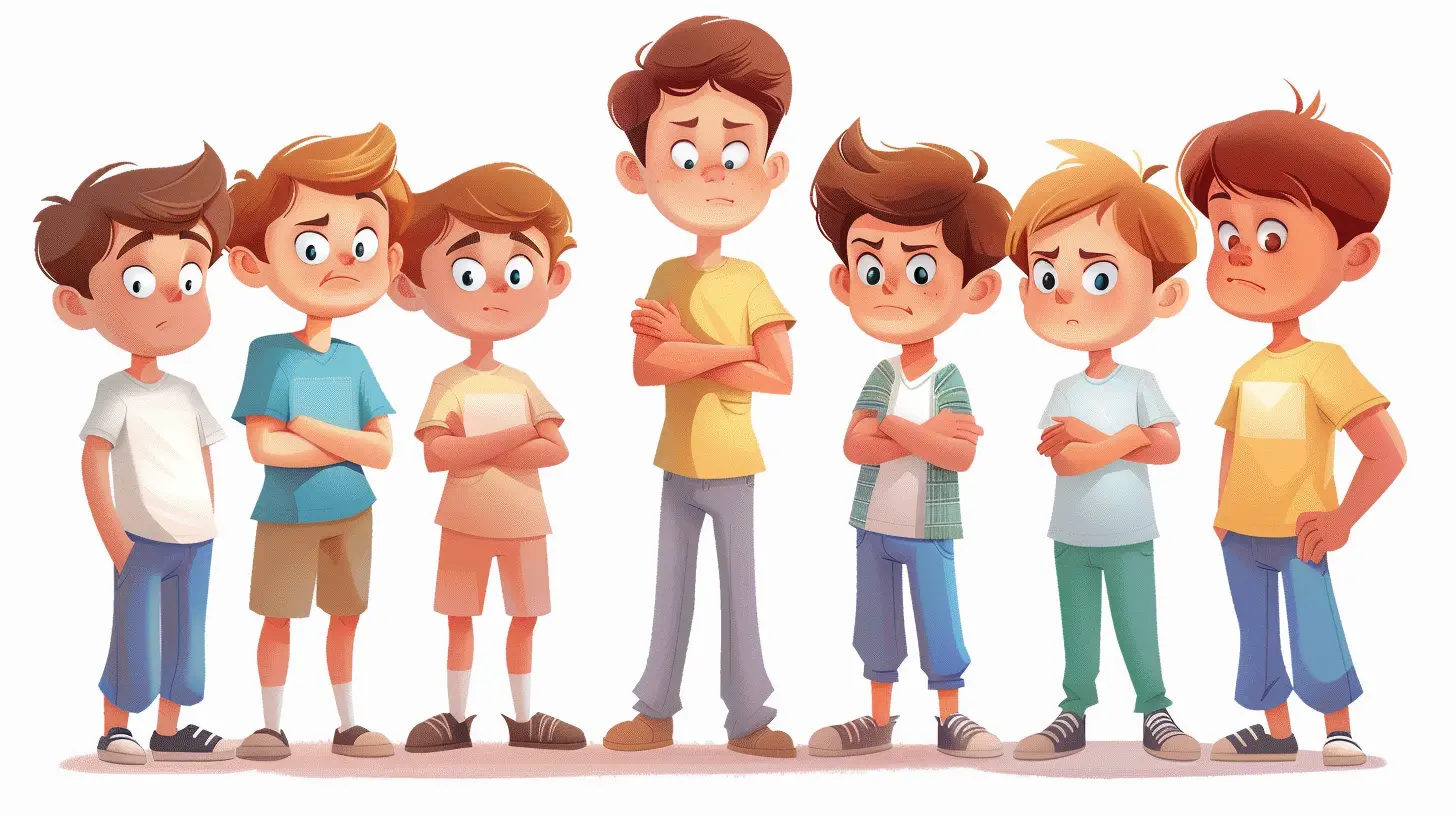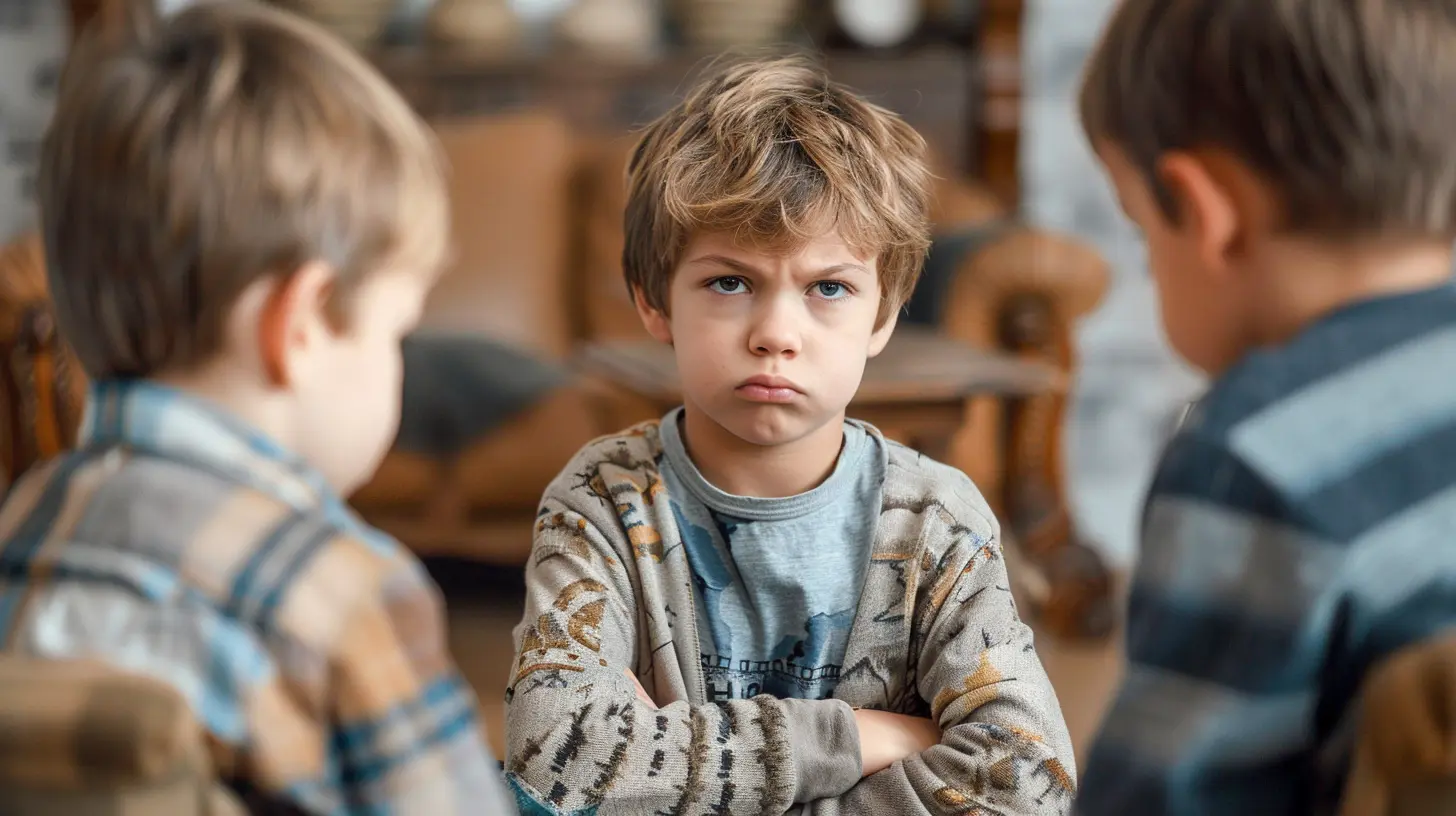Setting Realistic Expectations for Responsibility in Different Age Groups
15 November 2025
Let’s be real – parenting is a rollercoaster of diaper blowouts, sleepless nights, and trying to figure out when your little human should start doing things on their own. If you’ve ever found yourself saying, “Should my 7-year-old really be able to make their bed without turning it into a wrestling match with the blanket?” – you’re in the right place.
Setting realistic expectations for responsibility in different age groups is like trying to find that sweet spot between helicopter-parenting and letting your toddler drive the car. (Please don't let your toddler drive the car.)
Responsibility is one of those life skills that doesn’t come with a manual. But that doesn’t mean we can’t break it down in a way that makes sense – and have a little fun with it! So grab your coffee (or wine, we don’t judge), and let’s chat about what responsibility looks like at various ages – and more importantly, what it doesn’t.
What Is Responsibility, Really?
Before we figure out what to expect, let’s define what we’re actually talking about here. Responsibility isn't just about chores or homework. It’s about a child’s ability to manage themselves, their stuff, and contribute to the world (even in tiny ways).Think of it like this: teaching responsibility is like giving your kid a backpack and gradually filling it with more “stuff” to carry – not all at once, but little by little, based on what their little shoulders can handle.
But what’s realistic at each age? Let’s break it down.
Toddlers (Ages 1-3): Baby Steps Toward Big Kid Stuff
Yes, toddlers are tiny tornadoes with snack crumbs in their hair, but believe it or not, this age group can start learning responsibility. At this stage, it’s all about planting the seed – because let’s face it, expecting them to “clean their room” is like asking a goldfish to vacuum.What They’re Capable Of:
- Putting toys back in bins (with lots of help and encouragement)- Throwing away trash (like that half-munched cracker)
- Helping dress themselves (and yes, putting pants on their head counts at first)
- Feeding pets with supervision ("Oops! I fed the fish a sandwich again!")
How to Encourage It:
Use songs, games, and lots of praise. Make it fun – because for toddlers, it’s all about playing pretend. “Can you be a Super Helper and put this in the trash?” Boom. Instant motivation.
Preschoolers (Ages 4-5): The “I Can Do It Myself” Stage
Ah, preschoolers – half unicorn, half drama queen. This is the age where imagination rules the day, and they want independence in everything from pouring cereal (disaster) to choosing their outfit (clashing mismatched socks? Trend-setting!).What They’re Capable Of:
- Cleaning up toys with reminders- Brushing their teeth with supervision
- Feeding pets or watering plants
- Putting clothes in the laundry basket
- Setting the table (maybe one spoon at a time, but hey, progress!)
How to Encourage It:
Use visual schedules and simple routines. Preschoolers thrive on routine like plants thrive on sunlight. Make responsibilities predictable, and always celebrate effort, not perfection.
Early Elementary (Ages 6-8): Little Grown-Ups in Training
This is when things start clicking. They’re in school, learning rules, and starting to understand cause and effect (like, if I forget my homework, I get a sad face sticker). They still need guidance, but they’re becoming more capable—like little grown-ups in training wheels.What They’re Capable Of:
- Making their bed (will it be Pinterest-worthy? No. Does it matter? Also no.)- Packing their lunch with help
- Completing homework with reminders
- Taking care of personal hygiene more independently
- Starting a savings jar or allowance system
How to Encourage It:
Tie responsibilities to privileges. Want to stay up 10 minutes later? Help set the table without whining. It’s all about gentle accountability and consistency here.Tweens (Ages 9-12): Testing Limits and Building Trust
Ah, the tween years – when kids start craving independence but still carry their childhood teddy bear to bed. They want responsibility, but only if they can pick and choose what that means.What They’re Capable Of:
- Managing their homework and school responsibilities- Helping cook simple meals
- Doing laundry (yes, it’s possible!)
- Keeping track of their schedule (sports, clubs, etc.)
- Babysitting younger siblings (in small spurts and with guidance)
How to Encourage It:
Let them have a say. Tweens don’t want to be micromanaged, so offer choices when possible: “Do you want to do the dishes or vacuum today?” Also, don’t forget positive reinforcement – even a simple “I’m proud of you” can go a long way.Teenagers (Ages 13-18): The Final Frontier
Okay, now we’re in the big leagues. Teenagers are complex creatures. They’re capable of amazing responsibility – and also, forgetting to take out the trash for five days straight. This is the time to really build trust, increase expectations, and prep them for real life.What They’re Capable Of:
- Managing school deadlines and extracurriculars- Holding part-time jobs
- Driving (gulp)
- Budgeting their own money
- Making significant contributions at home (cooking, cleaning, planning)
How to Encourage It:
Treat them like young adults – because they are. Give them autonomy but make expectations clear. If they mess up? Use it as a teaching moment, not a lecture. Responsibility means learning from mistakes, not avoiding them.Tips for Nurturing Responsibility at Any Age
So, now that we’ve unpacked what kids can realistically handle at different stages, here are a few universal truths:1. Start Small and Add Gradually
Start with bite-sized tasks. You don’t hand a toddler a mop and expect them to clean the floor. Give them little wins first, and build from there.2. Be Consistent
Kids thrive on routine. If they know what to expect, they’re more likely to follow through. Consistency is like the secret sauce for responsibility.3. Use Positive Reinforcement
A high five, a hug, or a “nice job” can be more powerful than any sticker chart. Everyone likes to feel appreciated – even your 16-year-old with the earbuds glued in.4. Let Natural Consequences Teach
Forgot that lunchbox again? They’ll be hungry at school. Overslept and missed the bus? Time to walk (with supervision, of course). Let actions lead to learning.5. Model It
Little eyes are always watching. If you’re responsible, they’ll learn from you. Show up, apologize when you mess up, finish what you start – that’s the best lesson of all.What Happens If You Expect Too Much...or Too Little?
There’s a sweet spot with expectations. Expect too much too soon and kids can feel overwhelmed, anxious, or just downright frustrated. Expect too little and they may not develop the skills they need to become capable, confident humans.It’s a balancing act – and sometimes the balance tips. That’s okay. Adjust, adapt, and know that no one gets it right all the time.
Take heart: You’re raising a work-in-progress, not a perfectly polished adult.
Common Mistakes Parents Make (And How to Flip the Script)
We all mess up sometimes – that’s part of the gig. Here are a few common pitfalls and how to turn them into parenting wins:❌ Expecting Perfection
✅ Focus on effort. Mistakes are where the learning happens.❌ Doing Everything for Them
✅ Teach, show, then step back. Independence takes practice.❌ Being Inconsistent
✅ Set clear rules and stick to them – even when it’s easier not to.❌ Using Tasks as Punishment
✅ Frame responsibilities as privileges and contributions, not chores from prison wardens.Responsibility Isn’t a One-Time Lesson — It’s a Journey
Let’s wrap it up with this: teaching responsibility is not a one-and-done deal. It’s not like handing your kid a sponge and yelling, “Congratulations! You now understand adulthood!”It’s a journey – filled with messy floors, late-night talks, forgotten lunchboxes, and surprisingly proud moments when your 13-year-old makes dinner without setting off the smoke alarm.
So take a deep breath, laugh at the chaos, and remember: every small task they learn today is one giant adulting step tomorrow.
You're not just raising kids – you're raising future responsible grown-ups. And that, my friend, is a pretty awesome job.
all images in this post were generated using AI tools
Category:
Teaching ResponsibilityAuthor:

Liam Huffman
Discussion
rate this article
1 comments
Sabina McQuade
Thank you for this insightful article! It’s a refreshing reminder that every child grows at their own pace. Setting realistic expectations helps reduce stress for both parents and kids. I appreciate the practical tips provided to navigate responsibility across different age groups. Truly helpful!
November 23, 2025 at 4:24 AM

Liam Huffman
Thank you for your thoughtful feedback! I'm glad you found the tips helpful and appreciate your insights on pacing and expectations.


